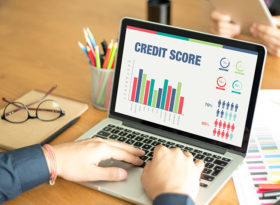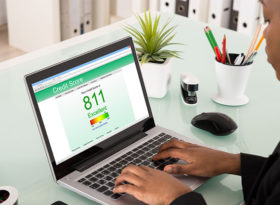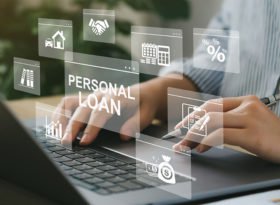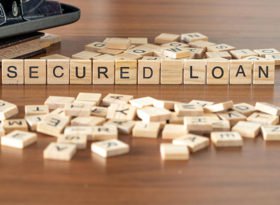 Short Term Loans
Short Term Loans
Secured vs unsecured loan: what’s the difference?
Planning to take out a loan but wondering which option will suit you better? Well, you’re at the right place. Here, we’ll discuss the difference between secured and unsecured loans and everything else you need to know before making a final decision.
What is the difference between a secured and unsecured loan?
Broadly, there are two types of loans—secured and unsecured. The biggest difference between secured and unsecured loans is that for secured loans, the personal assets of the borrower are used as collateral. Unsecured loans, however, require no collateral.
Unsecured loans can come with a higher interest rate than secured loans. In Australia, the interest rate for a secured loan typically lies between 6.5% to 9%.¹ For an unsecured loan, it can easily be in double digits depending on the individual financial profile of the borrower.
Another important point of distinction between secured vs unsecured loans is their payment schedules. Secured loans usually have a longer repayment period as compared to unsecured loans. ² Unsecured loans can be processed faster than secured loans because the lender is not required to assess the collateral and its value against the loan. An unsecured loan, therefore, may be processed instantly.³
What is an unsecured loan?
So, what is an unsecured loan? In simple terms, an unsecured loan is a debt without collateral. Instead of securing the loan against your assets, an unsecured loan is approved based on your creditworthiness and past credit payment history.
Examples of unsecured loans are:
- Credit cards
- Personal loans
- Student loans
- Medical loans
- Personal lines of credit
- Payday alternative loans⁴
Apply for an unsecured personal loan with Credit24
Unsecured loans with favorable terms
Unsecured loans with favorable terms is a type of unsecured loan that does not require collateral but still comes with favorable conditions often reserved for secured loans. These loans are typically offered with competitive interest rates, flexible repayment terms, and a very quick approval process.⁵ Lenders generally grant this loan to businesses with good reputations and financial stability.
What is a secured loan?
A secured loan is a type of borrowing where the borrower puts their assets as collateral against the loan. In case of default, the lender has the right to seize the asset of the borrower to recover the loan amount. The most common types of secured loans are:
- Auto loans
- Home equity loans
- Life insurance loans
- Mortgage loans
- Home equity line of credit (HELOC)
Here are some examples of assets that can be used as collateral against secured loans:
- Real estate
- Bank accounts
- Vehicles
- Stocks
- Mutual funds
- Insurance policies
- High-valued collectibles (gold, precious metals, antiques, etc.)
Secured vs unsecured loan: which is better and which is riskier?
Both secured and unsecured personal loans have their purposes and set of risks. So you should go with the one that’ll better suit your requirements, goals, and repayment capabilities. A secured loan may be a good choice for you because of the lower interest rates and longer repayment duration. An unsecured loan may be a good option because it can protect your personal assets from risk in case of any default in payment.
In the secured debt vs unsecured debt discussion, lenders prefer secured loans as they have access to your assets and can sell them to recover the loan amount in case of default. But if you fail to pay back your unsecured loan, the lender may have to take the legal route to recover the balance amount.
Secured loans – Pros and Cons
| Pros | Cons |
|---|---|
| Lower interest rates as the borrowing is secured against collateral. | Risk of losing assets if unable to repay. |
| The duration for repayment is longer. | May require valuable assets as collateral. |
| Easier to get for people with a limited credit history. | Interest rates may be higher than unsecured loans. |
| Borrower has the option for smaller monthly repayments. | Possibility of losing the asset if its value depreciates. |
Who are unsecured loans best suited for?
Unsecured loans can be best suited for people who have a good credit score, usually 625 and above.⁶ The higher the credit score, the greater options available for more flexible terms and interest rates on the unsecured loan. You can get an unsecured loan without the need for an asset for collateral. However, you should have a steady income and the ability to pay back the loan on time.
Secured vs unsecured loan: which one is safer?
If you have a good credit score and don’t want to risk losing your assets, unsecured loans could be safer for you. But if you’re confident you can pay back the loan on time, a secured loan could be cheaper because of the lower interest rate. Banks usually prefer secured loans over unsecured loans since their risk is mitigated with the collateral.
Credit24: Get a personal line of credit
Unsecured and secured loan: how to get one?
If you want to get a loan, having a solid credit history will be extremely helpful. It can be achieved with a regular salary, timely payment of bills, and general maintenance of funds in your account. This will not only make banks feel confident in your ability to repay the loan but it can also be used as a credit record for other lenders.
For an Australian citizen, you need to be at least 18 years old to get a secured or unsecured loan.⁷ You also need to have a minimum income of over $1,000 per month from your employer (and 50% of that could be from Centrelink). Additionally, you must have a reasonable credit history with no outstanding defaults.
Getting an unsecured personal loan
Several lenders in Australia provide unsecured loans to borrowers. Credit24 is a renowned and trusted lender that can help you meet your financial needs with unsecured loans. You can start the process by filling out a quick online application. It’ll require you to submit details about your driver’s license, medicare card, or passport along with your bank statements and general information.
If your application is approved, you can get a loan from $500 to $10,000 without providing any security. Here’s a glimpse of the entire process:
- Fill out the online application form.
- Get an immediate outcome of your application (decline or a pre-approval).
- Get the final assessment of your application usually within the same day.
- If approved, receive your money almost instantly, sometimes within 60 seconds from time of approval.
Let’s look at the benefits of applying for an unsecured personal loan from Credit24.
- No hidden costs or charges.
- Flexible loan options with up to 36 months to repay.
- Choose your repayment cycle––weekly, fortnightly, or monthly with no penalty.
- Application process is simple, secure, and fast.
- Get an unsecured line of credit and only pay for the funds you use.
Credit24: unsecured personal loans from $500 to $10,000”
Getting a secured loan
In case you want to take out a secured loan, you can approach one of the several lenders in the market. If you’re applying with a bank, it’s recommended to have an established banking history or relationship with the bank. This is because if you’re applying for a secured loan with your bank, chances are you’ll get a better interest rate based on your past credit and transaction history.
Disclaimer:
IPF Digital Australia Pty Ltd, trading as Credit24, ABN 59 130 894 405. Australian Credit Licence 422839. The information in this article is of general nature and does not take into consideration your objectives, financial situation or needs. Lending criteria, fees and charges apply. For more information about our products, eligibility criteria and terms and conditions, please visit www.credit24.com.au.
Sources:
- Nerdwallet: Secured Vs. Unsecured Personal Loans
- Bank Bazaar: Difference between secured and unsecured loans
- ABC Finance: How Long Does A Secured Loan Take To Complete?
- CNN Underscored: Secured vs. unsecured loans: What to know before you borrow
- Investopedia: Secured Debt vs. Unsecured Debt: What’s the Difference?
- ClearScore: What is the Minimum Credit Score for a Personal Loan?
- Special Broadcasting Service: When should you consider applying for a personal loan?




